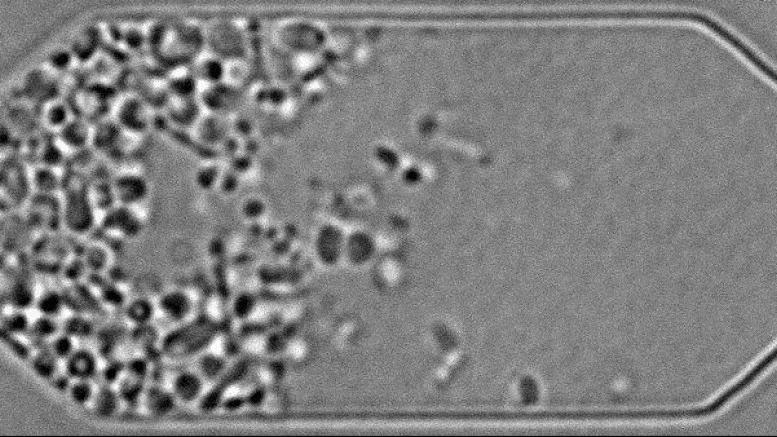New findings shed light on mechanisms controlling the most basic processes of life.
Five years ago, scientists created a single-celled synthetic organism that, with only 473 genes, was the simplest living cell ever known. However, this bacteria-like organism behaved strangely when growing and dividing, producing cells with wildly different shapes and sizes.
Now, scientists have identified seven genes that can be added to tame the cells’ unruly nature, causing them to neatly divide into uniform orbs. This achievement, a collaboration between the J. Craig Venter Institute (JCVI), the National Institute of Standards and Technology (NIST) and the Massachusetts Institute of Technology (MIT) Center for Bits and Atoms, is described in the journal Cell.
